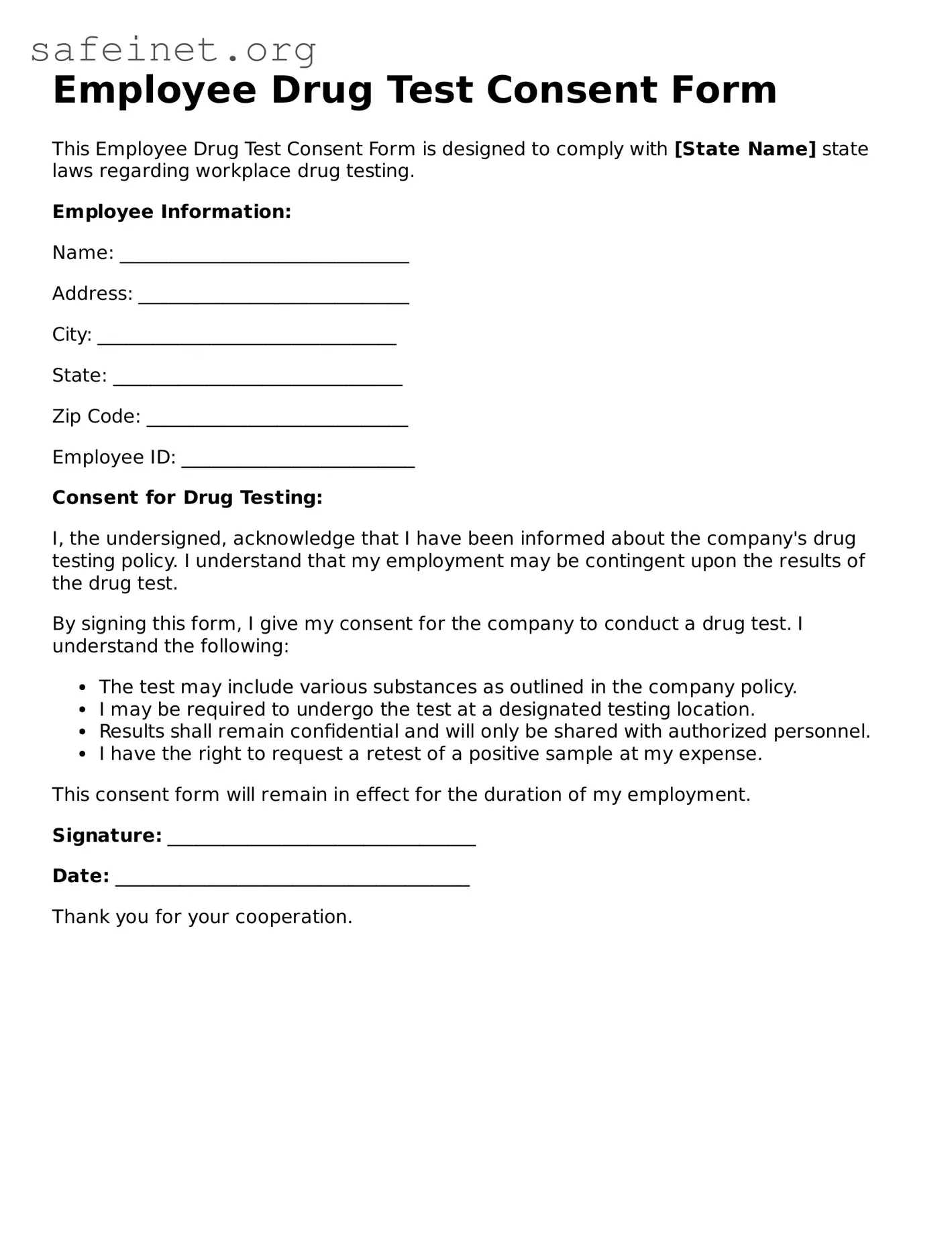Employee Drug Test Consent Form
This Employee Drug Test Consent Form is designed to comply with [State Name] state laws regarding workplace drug testing.
Employee Information:
Name: _______________________________
Address: _____________________________
City: ________________________________
State: _______________________________
Zip Code: ____________________________
Employee ID: _________________________
Consent for Drug Testing:
I, the undersigned, acknowledge that I have been informed about the company's drug testing policy. I understand that my employment may be contingent upon the results of the drug test.
By signing this form, I give my consent for the company to conduct a drug test. I understand the following:
- The test may include various substances as outlined in the company policy.
- I may be required to undergo the test at a designated testing location.
- Results shall remain confidential and will only be shared with authorized personnel.
- I have the right to request a retest of a positive sample at my expense.
This consent form will remain in effect for the duration of my employment.
Signature: _________________________________
Date: ______________________________________
Thank you for your cooperation.
